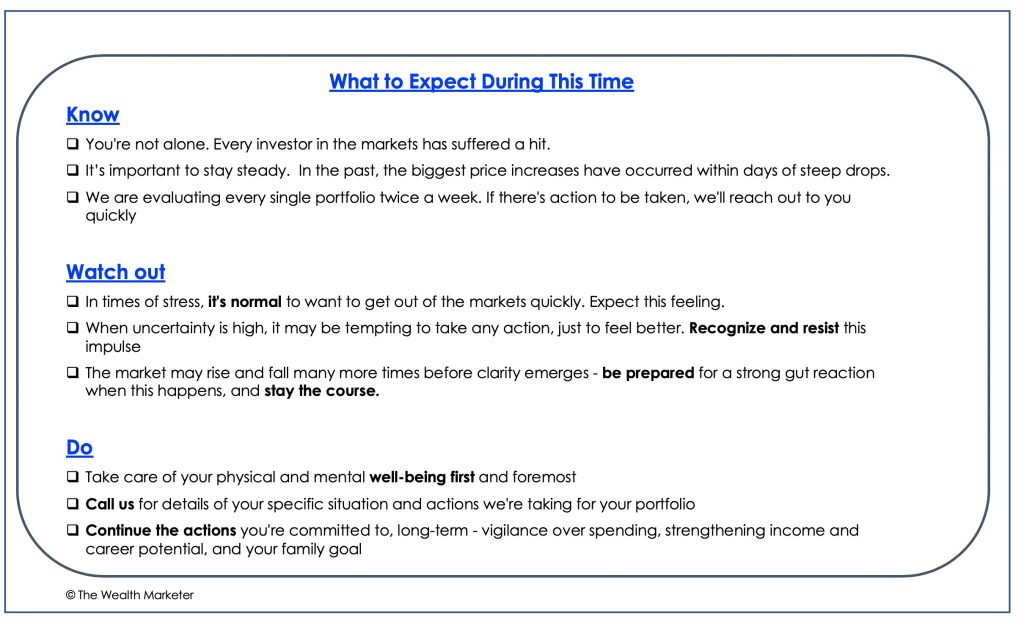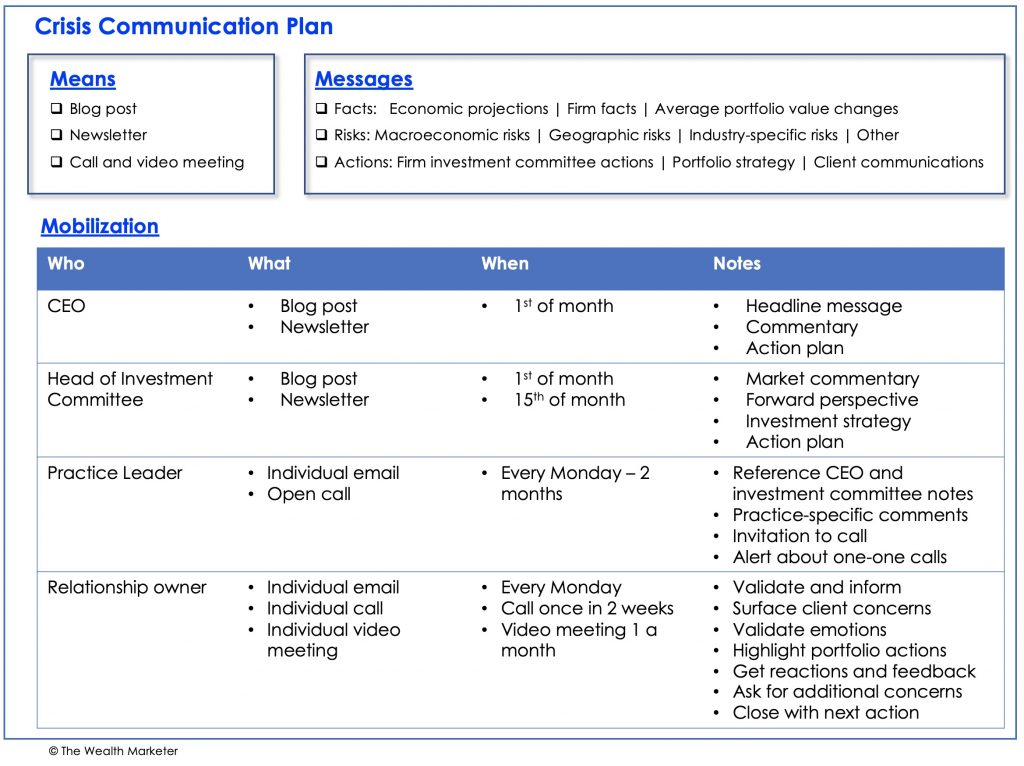
By now, the shock waves from the sudden emergence of Covid-19 are settling in.
There’s work to do in caring for yourself, your family, and the welfare of your clients.
You know this is going to last a while, and the workload will only increase.
If it’s overwhelming to think about everything on your plate, that’s normal.
But navigating your way out of this overwhelm is not impossible.
Use these science-based principles to clarify and focus your crisis communications.
By doing so, you’ll empower your clients to stay the course and preserve their calm as they navigate these stormy waters.
How You Can Help
Human reactions to a crisis are predictable and widespread.
This means simple and thoughtful actions you take will have a positive and predictable on your clients’ financial and mental well-being.
You can add immediate value to your clients in three ways:
- Provide facts in a simple-to-digest manner
- Alert them to risks that may negatively impact their actions
- Offer opportunity for agency and action by outlining actions they can control and take even with the existing uncertainty
In doing so, keep in mind the lessons from the CDC’s crisis psychology research:
- Boil down communications to the bare essence.
- Strengthen your messages with markers of credibility. For example, reference broadly accepted sources of authority in supporting your message.
- Enlist consistency in your communication:
- create a consistent messaging plan across the entire firm
- reference broader industry consensus in communicating your message
- invoke precedents that ended up with positive outcomes with a similar strategy
- Get out with an accurate message as quickly as possible
An Actionable Framework For Your Use

Photo by J. Kelly Brito
When you’re in the thick of managing portfolios and individual client calls, coming up with a concerted communication plan may feel redundant or unachievable.
After all, you’re human too, and are facing the same pressures as many of your clients, with the added obligation to care for their financial interests.
But taking an hour to calmly think through a high-level plan will pay rich rewards:
- You’ll communicate proactively instead of reactively
- Your tone will be more calm and focused
- You’ll feel an increased sense of agency and control, enhancing your own as well as your clients’ well-being
- You’ll significantly improve your credibility and confidence. People rarely forget the sources of calm and optimism that stood by them in moments of crisis
(If you have any doubts about this, think of Dr. Anthony Fauci’s communications)
Here’s the plan:
Create the List of Threes
List 3 things you want your clients to each KNOW, WATCH OUT FOR, and DO.
These need not be all financial matters although clearly you must touch on their financial affairs in a substantive way.
For example:

Here’s an example:
Create the Action Plan
- Means: How will you communicate with your clients. e.g.
- Blog
- Email and newsletter
- Personal calls and/or video conference meetings
- Messages and talking points:
- Facts – economy, firm, and individual portfolios
- Risks – financial, economic and personal
- Actions – firm-level, portfolio level and individual level
- Mobilization plan – the specifics of who will communicate with whom, how and when.
The simplest way to do this is with a chart that summarizes the plan.

Make It Happen
Once you have the plan and the marching orders are clear, it’s much easier to execute and coordinate action on a weekly or even daily basis.
Your entire firm has a common playbook and a shared understanding of what needs to be said, and how. This way you can be sure that every single client of the firm hears the same consistent and well-considered message that has been thoughtfully created in advance.
Once you have this problem firmly in hand, you can focus on even more critical matters:
- Getting through the crisis in one piece
- Taking care of yourself so you can show up with your best self for all who rely on you
- Releasing the time you need to focus on every single client to help them come through safe and clear
Source: Psychology of a Crisis, Crisis and Emergency Communication, CDC